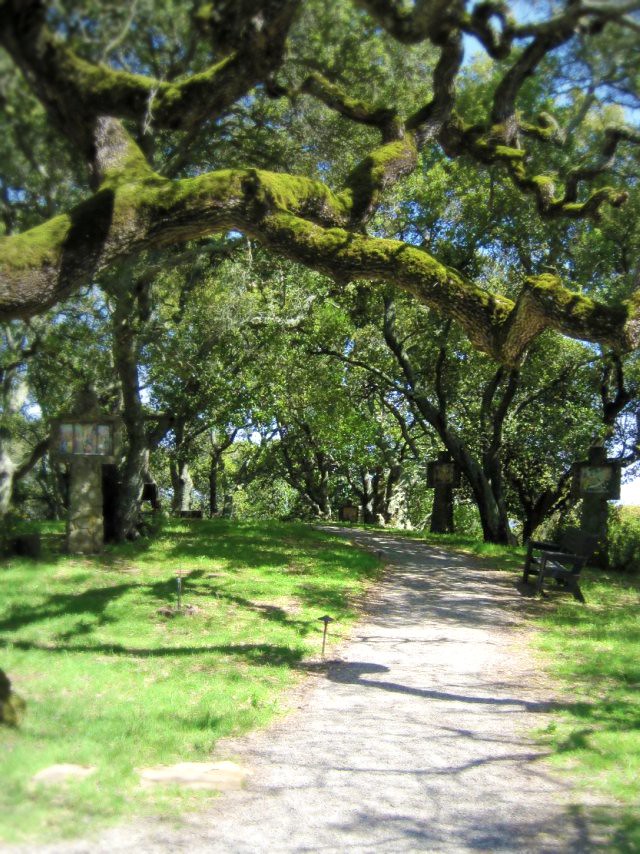At our “Living Joy to the Fullest” retreat, we took part of the afternoon to walk the stations of the cross. San Damiano’s stations are set in a gorgeous outdoor oak grove. Growing up, I never walked the Stations. I don’t know if it’s just not Lutheran (the whole no idols thing perhaps?) or what. In fact, I don’t think I really understood the Stations until I went to Israel and saw the actual Stations of the Cross in the streets in Jerusalem.
Since then, I’ve walked it many times, which is something that always gives me great reason to pause and take in the enormity of what this walk represents. Jesus’ final journey is something both foretold and inescapable. It is humbling and horrifying. It is a death sentence, and yet it is freeing. It is love beyond my Earthly comprehension, and in it’s last moments (Father, Father, why have you foresaken me?) it is as human as any moment in all of creation. I could write volumes on that moment, of Jesus crying out. It rocks me to my foundation and I can get lost thinking about it.
As a group, we read a meditation from the Vatican at each Station, and took the time to think about Jesus, those around him, and the Romans. When we ended, I read this poem, which was written at the time of the Holocaust. The stories of it’s origins are varied. It may have been found in a concentration camp, on a deceased child, in her pocket. It is moving. It seemed to tie with Jesus’ last journey and the forgiveness and love that he altruistically portrayed for all of us.

